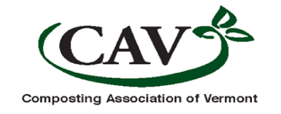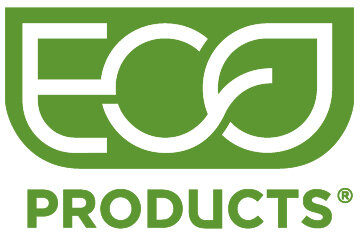VORS 2020 was held as a (FREE) webinar series
Monday-Thursday, August 3rd-6th, 2020
14th Annual Vermont Organics Recycling Summit “2020 and Beyond”
We have reached 2020, and the ban on landfilling organics that Vermonters have been gearing up came into effect this July! To help promote “2020 and Beyond”, this year’s Summit included sessions on the use of compost products for storm water management, organics hauling, research, and outreach models to help communities and residents meet the State’s organics diversion, food rescue, and food scrap recycling goals.
For More Information Contact:
Natasha Duarte, Director Composting Association of Vermont at 802.373.6499 or info@compostingvermont.org
Monday August 3rd, 1:00-2:30pm
Opening Remarks, Peter Walke, Commissioner, VT Department of Environmental Conservation
State of the State, Josh Kelly, Materials Management Section Chief, ANR, Solid Waste Program
Keynote: Who me? Waste Food? Vermont household food waste perceptions and behaviors. Dr. Meredith Niles, Department of Nutrition and Food Sciences, UVM
Click on the session titles to learn more
Tuesday August 4th, 1:00-2:30pm
+ Contaminants of Emerging Concern: Implications for Compost Quality, Use, & Marketing
This panel shares the latest research about contamination concerns for ensuring compost quality, including PFAS, persistent herbicides, and microplastics. What are the sources of these contaminants? What do we need to know as composters? Are there different implications for different compost end-uses? Come to this session to learn what we know, what we don’t know, and what relevant research is currently underway.
- Andrew Carpenter, Northern Tilth
- Ned Beecher, NEBRA
- Facilitator: Deb Neher, Department of Plant and Soil Science, UVM
Wednesday August 5th, 10:00-11:30am
+ Hauling Innovation and Entrepreneurial Opportunities for the Residential Market
Vermont needs more local composting options! Our state is a trailblazer in keeping food out of the landfill. Even better, we are fundamentally shifting the way we collectively view food scraps. Beginning July 1 of this year, all Vermonters must keep food scraps out of their trash. Join our panelists to learn how they are helping residents capture food scraps in ways that are both helpful and convenient for the resident, while boosting economic development in their communities.
- Debra Darby, Organics Recycling Consultant, Organics co-collection
- Jen Murphy, Willow Tree Community Compost, Building community while creating compost
- Declan Stefanski, ReGreenVT, Backyard composters find business opportunity in Vermont’s Universal Recycling Law
- Facilitator: Emma Stuhl, VT ANR, Solid Waste Program
Wednesday August 5th, 1:00-2:30pm
+ An affordable, buildable, easy to operate, commercial rotating drum composter for schools, organizations, and small communities
In this webinar presenters John and Katie Culpepper will discuss a novel in-vessel composter that can be constructed by reasonably skilled maintenance staff and others, in a reasonably well-equipped shop, for less than $15,000 in materials cost. There are now five of these units in operation in NY and NJ, and each is capable of processing up to 50,000 pounds of unsorted food waste per year. One of these composters has been in continuous operation for over four years. The presenters will also discuss ongoing work incorporating human urine into this system to significantly raise the temperature inside the drum to produce a better compost product in less time.The in-vessel system is very easy to use and can be placed inside of a 40-foot shipping container. The design manual, operating manual and other supporting materials are free to anyone interested. There are also manufacturing facilities in Upstate NY that can build and deliver this in-vessel system to facilities in the Northeast and beyond. The initiative, Compost for Good, was founded to assist others in developing this and other community-scale composting systems throughout the US and beyond.
- John Culpepper, Director of Facilities and Sustainability, North Country School/Camp Treetops, Lake Placid, NY and co-founder of Compost for Good
- Katie Culpepper, Co-founder of Compost for Good
- Facilitator: Bob Spencer, Windham Solid Waste Management District
Thursday August 6th, 1:00-2:30pm
+ Toward Compost Standards and Specifications – Getting Designers, Producers and Clients on the Same Page
Compost manufacturers nationwide have faced similar challenges like those in the State of Vermont. As the push for greener landscape options, better stormwater management and rising issues with impaired water bodies have grown, composters are at the forefront of solutions. Besides the huge benefits from the act of composting itself, the finished product has unique properties that make it a critical tool in healing soils and our waterways. In Vermont, there are a number of issues effecting compost producers large and small; issues like quality, standardized testing results, and creating common specifications. Adopting uniform standards would allow the Vermont DOT and DEP to develop statewide options for soil amendment, erosion control practices and general compost uses for planting or turf. To create greener solutions for soils to protect Lake Champlain, the White River or Furnace Brook, a universal compost language is needed. A tool like the United States Composting Council Seal of Testing Assurance (STA) Program can help build options and data to study trends in finished compost parameters, allowing Vermont to tailor specifications to meet market-available products. If composters continue to lead the way on sustainable solutions to protect soil and water, but without nationwide scientific-based standards, obstacles will stop end users from adopting these greener solutions.
- Chuck Duprey, Naturcycle
- Dan Goossen, Green Mountain Compost, CSWD
- Kevin Burke, ANR DEC Stormwater Program
- Heather Voisin, Vermont Agency of Transportation
- Facilitator: Marc Companion, Lake Champlain Sea Grant; ANR DEC













